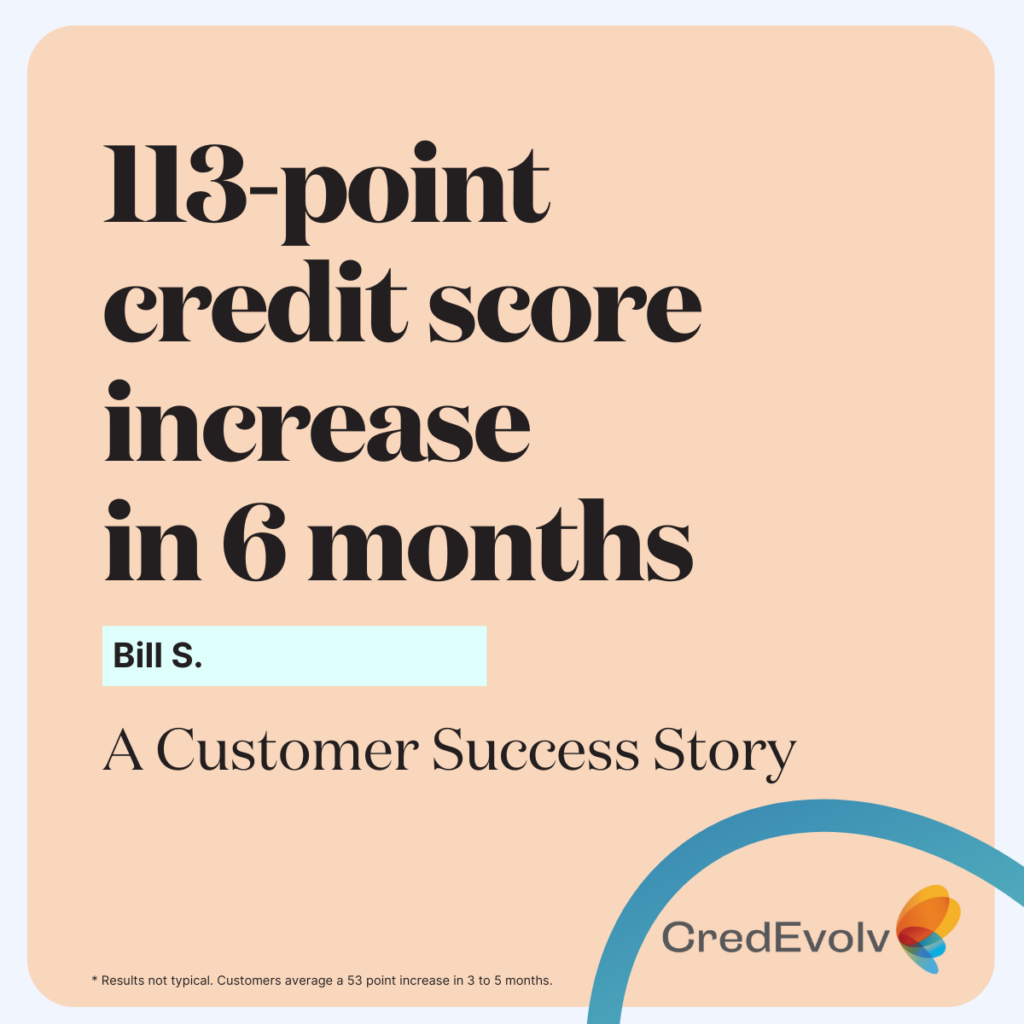A 694 credit score isn’t the worst thing in the world. Far from it, in fact. But if something on your credit report was keeping you from a score in the 700s, would you try to fix it?
Bill S. did – and the result exceeded his expectations!

Bill had a 694 credit score when his real estate agent connected him to the CredEvolv platform. A pesky medical collection was preventing him from reaching his goal of a 740 score. His counselor worked to remove it while Bill continued his responsible credit usage. Six months later, Bill blew past his goal and achieved an 807 credit score, which set him up to receive the best possible interest rate on a mortgage and a smooth underwriting process!
What are collections on a credit report?
We answered this question in a previous success story, but here’s a refresher. A collections account can occur if you fall behind on loan or credit card payments. The lender or creditor may decide to transfer your account to a collection agency or sell it to a debt buyer.
This can happen anytime from the date you begin missing payments or stop paying the full minimum payment to a few months after you become delinquent. Lenders and creditors will typically attempt to reach you about the debt by phone and by mail before sending it to a collection agency. When that happens, it can jeopardize your attempts to achieve a 694 credit score.
What are some ways you can have a 694 credit score or higher?
No matter where you are in your credit journey, doing the right things with your credit can help you overcome poor credit habits and go from a 694 credit score to an 807 credit score like Bill did.
Here are a few of those things:
- Make payments on time, every time. Late payments can significantly damage your credit score and lead to costly fees.
- Pay more than the minimum whenever possible. This helps reduce interest costs and gets you out of debt faster. But if you can’t, see the previous bullet point. Don’t just avoid making the payment. Pay the minimum so you don’t sink your 694 credit score.
- Use credit strategically. Aim to keep your credit utilization below 30% of your total available credit.
- Avoid new debt unless absolutely necessary. Only take on new credit if it serves a purpose and aligns with your financial goals.
Read more credit success stories here, and enroll or connect a client today!
